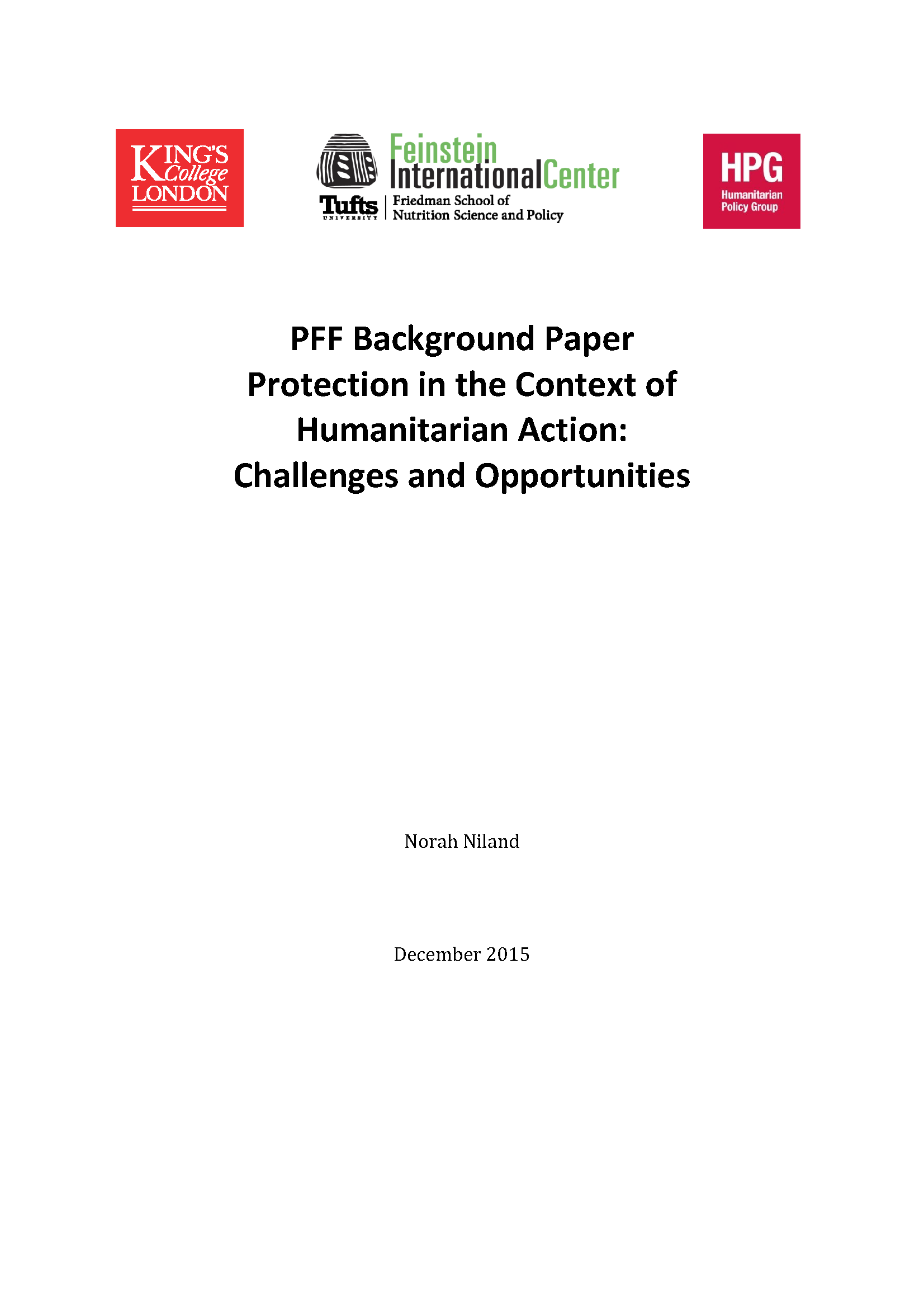The bulk of humanitarian action occurs in armed conflict settings and this will likely persist into the foreseeable future. Therefore, protection – keeping people safe from armed violence, abuse, discrimination, exploitation, and persecution – is as critical a component of humanitarian action as providing material assistance is. Although protection has recently received some overdue attention, it is not yet part of the DNA of the humanitarian system. This paper highlights the importance of protection needs by examining the external, contextual, and internal humanitarian systemic issues that facilitate or constrain protection outcomes. Based on the analysis, the paper lays out the case for moving away from the current “supply-driven humanitarianism,” in which interventions shaped by what is on offer by individual agencies. It recommends moving to an over-arching whole-of-crisis strategic approach, in which interventions are informed by the views and priorities of those at imminent risk and the measures they are taking to stay safe and increase their survival options.
This paper was developed for the “Planning from the Future” study, conducted in collaboration with Kings College London and the Humanitarian Policy Group.







